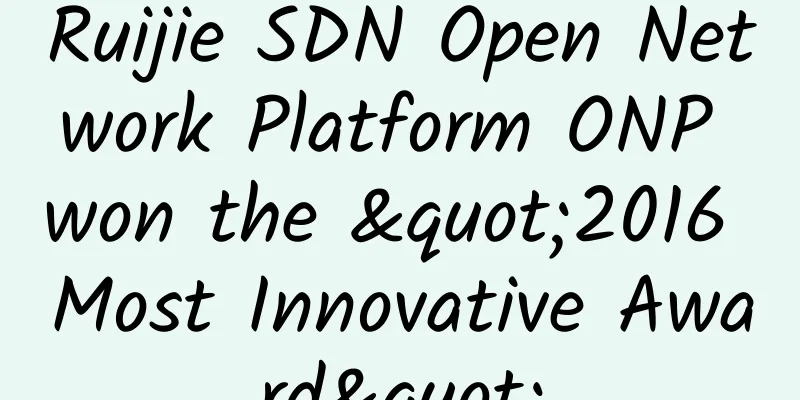10 hottest enterprise networking startups in 2019

|
Cloud computing, automation, and intent-based networking have been the buzzwords this year and are the factors that helped networking startups stand out in the industry in 2019. Simplifying network connectivity is important and is a major trend in the enterprise networking space as both the channel and end customers demand more automation and flexible consumption models for IT environments. Some of the startups on our list have established partnerships with established technology giants such as Cisco, while others are competing head-on with technology giants in emerging markets such as SD-WAN and network edge.
Here’s a look at the 10 hottest enterprise networking startups of 2019: 128 Technology Founded in 2014 as Primary Networks II, 128 Technology is a networking startup focused on SD-WAN, edge, and security solutions, shaking up the hardware-centric networking market with its own software-based routers and networking platforms. 128 Technology, based in Burlington, Massachusetts, has chosen to take an “entrepreneurial” approach to working with the channel. In August, the channel-friendly startup named a new channel executive, Mark Vella, as vice president of business development and alliances. Apstra Apstra, a pioneer in intent-based networking, is a 100% channel-focused startup whose AOS platform is different from other intent-based networking solutions in that it is dedicated to automating data center operations across networks in large enterprise data centers (built on equipment from Cisco, Dell EMC, HPE, Aruba, Arista, etc.). Apstra is headquartered in Menlo Park, California. In September, Apstra hired two industry veterans to drive engineering and global business development, including former Extreme Networks co-founder Herb Schneider as vice president of engineering and David Butler in charge of global business development. Arrcus Arrcus, a network infrastructure startup, was founded in 2016 with the slogan "Make the Network Different". Arrcus' network switching and routing operating system is vendor-independent. Arrcus said its mission is to provide software-driven network transformation for the interconnected world by connecting hybrid and multi-cloud environments. Arrcus, based in San Jose, California, raised $30 million in an “oversubscribed” Series B round in July, while launching a new version of its own independent, popular operating system, ArcOS. Cato Networks Cato Networks is a four-year-old cloud networking and security startup that offers cloud services that integrate edge SD-WAN, a global network backbone, and network security services. Cato Networks, based in Tel Aviv, Israel, announced in January that it had raised $55 million in previous funding after seeing a 352% increase in bookings in 2018. In November, Cato Networks launched a global program for partners, including master agents, sub-agents, VARs, and MSPs. CloudGenix Founded in 2013, San Jose, California-based CloudGenix has been disrupting the SD-WAN market, often winning new customers head-on with vendors like Cisco and VMware. CloudGenix launched CloudBlades in July as a platform that provides all the IT services needed for branch offices, such as cloud-based SD-WAN, security, voice services, multi-cloud access and operational tools, without requiring any additional hardware or software, said Kumar Ramachandran, the company's CEO. Forward Networks Forward Networks, founded six years ago, focuses on enterprise software for network management and software-defined networking, and is able to grab market share from vendors such as Cisco and Juniper Networks. Forward Networks' innovative platform provides network visibility, policy validation and change modeling. In October, the Palo Alto, California-based startup raised $35 million in Series C funding led by Goldman Sachs, one of Forward’s most important clients. Lumina Networks Lumina Networks is a new market star founded in 2017. It is a company spun off from Brocade. Previously, Lumina Networks acquired Brocade's emerging SDN technology. Today, Lumina Networks provides SDN controller solutions and services based on OpenDaylight for the delivery of 5G. The San Jose, California-based startup launched its Lumina Partner Program in October, a five-tier program that offers partners new revenue opportunities by building innovative network solutions. NS1 NS1, a traffic management provider founded in 2013, only started doing business through the channel this year after launching its first global partner program aimed at attracting system integrators, VARs and MSPs. NS1 has high expectations for its fiscal year 2020 plan. Warren Mead, NS1's vice president of channel partnerships, said NS1's goal is to attract channels and screen 50% of effective channels and revenue for new business lines. Teridion WAN specialist Teridion launched in 2013 with a platform that provides the SLA-based performance and reliability of existing WAN technologies, such as MPLS, with the flexibility and global reach of the public cloud. The Teridion for Enterprise platform can integrate with third-party SD-WAN solutions. Teridion, headquartered in San Francisco, announced in October that it has expanded its SD-WAN product portfolio to the Chinese market through a cloud-based network (now supporting the three major authorized ISPs: China Mobile, China Telecom and China Unicom), which is available to partners. Veriflow Veriflow, based in San Jose, California, specializes in network verification and troubleshooting, helping customers model, analyze and verify hybrid networks, attracting customers such as music streaming giant Pandora. VMware announced its intention to acquire Veriflow in August, but the acquisition amount has not been disclosed. VMware said that after the transaction is completed, it will invest in Veriflow and integrate it into the vRealize Network Insight product to improve network monitoring and troubleshooting capabilities. |
Recommend
Why are WiFi 6 routers so expensive? Is the technology really that advanced?
We have mentioned the technical content related t...
Network Analysis in Rust: Capturing and Analyzing Network Traffic with Pcap and Pnet
Network analysis is critical for monitoring, secu...
IPv6+, a new starting point for the next generation Internet
As of July 2020, the number of users allocated IP...
Huawei and partners build a "capability-based" ecosystem to accelerate digital transformation in thousands of industries
[51CTO.com original article] From "0 to 1, 1...
Riverbed Launches Industry's Most Comprehensive Digital Experience Management Solution
Recently, Riverbed Technology announced the launc...
How Wi-Fi Location Services Enable IoT Asset Tracking
To locate IoT devices, you need a wireless commun...
SpectraIP: €3.5/month KVM-2GB/50GB/5TB/Netherlands data center
SpectraIP is a Dutch hosting company that provide...
Gcore: Khabarovsk/Vladivostok KVM from 1.08 Euros per month, 488M memory/8G hard disk/288G monthly traffic
G-core (gcorelabs) has been shared several times ...
my country's 5G base stations reach 718,000 to boost the development of artificial intelligence
The 2020 China Artificial Intelligence Summit For...
The 6th generation of Wi-Fi technology is here! Speed upgrade
While we are still struggling to decide whether t...
Inspur Network Electronics Range Training Base officially launched
Recently, the "Inspur Network Electronic Tar...
South Korea passes budget to encourage virtual operators to participate in 5G competition
South Korea's Ministry of ICT recently said t...
Wall Street's largest securities service platform brings blockchain technology to the CDS market
[Original article from 51CTO.com] According to Bl...
Suyun: Guangzhou Mobile 1G bandwidth VPS monthly payment 188 yuan, Hong Kong 500M-1G large bandwidth VDS monthly payment from 495 yuan
Suyun Technology is Shenzhen Lesuyun Network Tech...
404 Not Found? It crashed again...
The dreaded "404 Page Not Found" error ...









